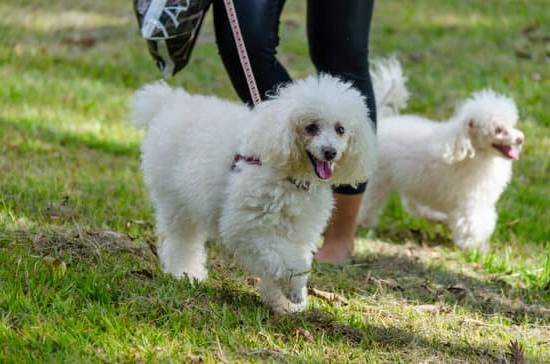Bernese Mountain Dogs are known for their gentle temperament, intelligence, and loyalty, making them wonderful companions for families. However, training this breed requires a specific approach to cater to their unique characteristics. In this article, we will explore how to train Bernese Mountain Dogs effectively to ensure they become well-behaved and well-adjusted pets.
One key aspect of training Bernese Mountain Dogs is understanding their breed traits. These dogs are known to be sensitive and eager to please, making them responsive to positive reinforcement training methods. Early socialization is crucial for Bernese Mountain Dogs to ensure they grow up to be friendly and well-mannered around other animals and people.
Basic obedience training is essential for all dogs, including Bernese Mountain Dogs. Teaching commands like sit, stay, and come can help establish a strong bond between you and your furry companion. As you progress with training, advanced techniques can be introduced to challenge your Bernese Mountain Dog mentally and physically. Additionally, incorporating regular exercise into their routine is vital for keeping them happy and healthy.
The Importance of Early Socialization for Bernese Mountain Dogs
Early socialization is crucial for Bernese Mountain Dogs to ensure they grow up to be well-adjusted and friendly pets. This breed is known for their gentle and friendly nature, but without proper socialization, they may become timid or shy. To socialize your Bernese Mountain Dog, expose them to a variety of people, animals, and environments from a young age. This will help them feel comfortable in different situations and prevent fear-related behaviors later on.
One effective way to socialize your Bernese Mountain Dog is by enrolling them in puppy classes or training classes specifically designed for socialization. These classes provide a structured environment where your dog can interact with other puppies and learn vital social skills. Additionally, exposing your Bernese Mountain Dog to new experiences regularly, such as visits to the park, walks in busy areas, or playdates with other dogs, can also help in their social development.
It’s important to remember that early socialization sets the foundation for the rest of your Bernese Mountain Dog’s life. By providing positive experiences and exposing them to new stimuli in a controlled manner, you are helping to shape their behavior and temperament as they grow older. Consistent and patient efforts in early socialization can lead to a well-rounded and confident Bernese Mountain Dog that will be a joy to have as part of your family.
Basic Obedience Training Techniques for Bernese Mountain Dogs
Bernese Mountain Dogs are known for their gentle temperament, intelligence, and strong work ethic. When it comes to basic obedience training for Bernese Mountain Dogs, consistency is key. Begin by teaching your Bernese Mountain Dog simple commands such as sit, stay, come, and heel. Use positive reinforcement techniques such as treats, praise, and toys to motivate your dog during training sessions.
One important aspect of training Bernese Mountain Dogs is to establish yourself as the pack leader. These dogs are eager to please but can also be stubborn at times. By maintaining a firm and consistent approach to training, you can effectively communicate expectations to your Bernese Mountain Dog. This will help build a strong bond between you and your pup while setting the foundation for more advanced training in the future.
To train Bernese Mountain Dogs effectively, it’s essential to keep training sessions short and engaging. These dogs have a short attention span, so breaking up training into smaller sessions throughout the day can be more effective than one long session. Incorporate playtime and mental stimulation activities into their training routine to keep them engaged and excited about learning new commands. Remember that patience and positive reinforcement are key when teaching your Bernese Mountain Dog obedience skills.
| Training Technique | Description |
|---|---|
| Positive Reinforcement | Use treats, praise, and toys to reward good behavior during training sessions |
| Consistency | Maintaining a firm and consistent approach to establish yourself as the pack leader |
| Short Training Sessions | Break up training into shorter sessions throughout the day to keep your Bernese Mountain Dog engaged |
Advanced Training Tips for Bernese Mountain Dogs
Teach Advanced Commands
Once your Bernese Mountain Dog has mastered the basic obedience commands, you can move on to teaching them more advanced commands. Some useful advanced commands to teach your Bernese Mountain Dog include “stay,” “leave it,” “heel,” and “come.” These commands will further strengthen the bond between you and your dog, as well as improve their overall behavior and responsiveness.
Use Positive Reinforcement
As with any training, positive reinforcement is key when teaching advanced commands to your Bernese Mountain Dog. Rewarding good behavior with treats, praise, or playtime will encourage them to continue performing the desired actions. It’s important to be consistent with your training and not get frustrated if progress is slow – every dog learns at their own pace.
Stay Patient and Consistent
Advanced training can be challenging for both you and your Bernese Mountain Dog, so it’s crucial to stay patient and consistent throughout the process. Set aside regular training sessions each day to work on advanced commands, keeping them short and engaging. Remember that training takes time and effort, but with dedication and perseverance, you’ll see improvement in your Bernese Mountain Dog’s skills.
Exercising and Activity Requirements for Bernese Mountain Dogs
The Bernese Mountain Dog is a large and powerful breed that thrives on physical activity and exercise. As a working breed originally bred for draft and droving work, they have a natural inclination towards being active. It is crucial to provide them with sufficient exercise to keep them happy, healthy, and well-behaved. Understanding the exercise needs of Bernese Mountain Dogs is essential in maintaining their overall well-being.
To ensure that your Bernese Mountain Dog remains physically fit and mentally stimulated, it is recommended to engage them in daily activities such as long walks, hikes, or jogs. These dogs also enjoy playtime in a secure and spacious area where they can run freely. Incorporating interactive toys and games during exercise sessions can help stimulate their minds while providing physical exertion.
One of the key aspects of understanding how to train Bernese Mountain Dogs lies in recognizing that regular exercise is not just about keeping them physically fit; it also plays a vital role in preventing behavior problems that may arise from pent-up energy. Engaging in regular exercise routines will help curb any destructive behaviors that could result from boredom or lack of physical activity.
| Exercise Tip | Description |
|---|---|
| Engage in Daily Walks | Take your Bernese Mountain Dog for daily walks to keep them physically fit. |
| Interactive Toys | Use interactive toys during playtime to stimulate their minds along with physical activity. |
Positive Reinforcement Methods for Training Bernese Mountain Dogs
Bernese Mountain Dogs are known for their gentle nature and willingness to please, making them a great candidate for positive reinforcement training methods. Positive reinforcement involves rewarding good behavior with treats, praise, or toys to encourage the desired behavior to be repeated. Here are some effective positive reinforcement methods for training Bernese Mountain Dogs:
- Use high-value treats: Bernese Mountain Dogs are food-motivated, so using tasty treats like small pieces of chicken or cheese can be highly effective in training. Make sure to use small portions to avoid overfeeding during training sessions.
- Clicker training: Clicker training is a popular method that involves using a clicker to mark desired behavior and then rewarding the dog immediately. The sound of the clicker becomes a cue that the dog has done something right, making it easier for them to understand which behaviors are being rewarded.
- Consistency is key: Be consistent in your rewards and timing when using positive reinforcement. Reward the behavior you want as soon as it happens to help your Bernese Mountain Dog make the connection between their actions and the reward.
Positive reinforcement not only helps in shaping good behavior but also strengthens the bond between you and your Bernese Mountain Dog. By using these methods consistently and positively, you can effectively train your Bernese Mountain Dog while creating a happy and trusting relationship.
Remember that every dog is unique, so it’s important to tailor your training approach to suit your Bernese Mountain Dog’s personality and needs. With patience, consistency, and positive reinforcement techniques specific to this breed, you can successfully train your Bernese Mountain Dog and enjoy a well-behaved companion for years to come.
Additionally, enrolling in obedience classes or seeking guidance from professional trainers who specialize in handling Bernese Mountain Dogs can provide valuable insights on how to train these gentle giants effectively. Don’t hesitate to reach out for resources or further education on positive reinforcement methods tailored specifically for Bernese Mountain Dogs.
Addressing Common Behavioral Issues in Bernese Mountain Dogs
Bernese Mountain Dogs are known for their gentle and affectionate nature, making them great family pets. However, like any breed, they can sometimes exhibit certain behavioral issues that may need to be addressed through training. It is important for owners to understand the common behavioral issues that Bernese Mountain Dogs may face in order to effectively train and correct these behaviors.
One common behavioral issue that Bernese Mountain Dogs may exhibit is separation anxiety. This breed is known for being very loyal and attached to their owners, so they may become anxious or distressed when left alone for extended periods of time.
To address this issue, it is important to gradually desensitize your Bernese Mountain Dog to being alone by starting with short periods of time apart and gradually increasing the duration. Providing toys or treats to keep them occupied while you are away can also help alleviate their anxiety.
Another common behavioral issue in Bernese Mountain Dogs is stubbornness or independence. These dogs are intelligent but can sometimes be willful, making training a bit more challenging. To address this issue, consistency and positive reinforcement are key. Establishing clear boundaries and rules from an early age will help prevent unwanted behaviors from developing. Using positive reinforcement techniques such as treats, praise, and rewards will encourage your Bernese Mountain Dog to listen and follow commands.
It is also not uncommon for Bernese Mountain Dogs to exhibit tendencies towards being territorial or protective. While this trait can be beneficial in some situations, it can also lead to aggressive behavior if not properly managed through training. Teaching your Bernese Mountain Dog proper socialization skills from a young age can help reduce territorial tendencies and prevent potential aggression towards strangers or other animals.
Additionally, enrolling your dog in obedience classes or working with a professional trainer can provide guidance on how to train Bernese Mountain Dogs to interact in various situations in a controlled environment. Remember that patience, consistency, and positive reinforcement are key when addressing common behavioral issues in Bernese Mountain Dogs.
Training for Specific Tasks Such as Agility or Therapy Work With Bernese Mountain Dogs
Agility Training for Bernese Mountain Dogs
Agility training can be a fun and rewarding activity for both you and your Bernese Mountain Dog. This type of training helps improve their physical fitness, mental sharpness, and builds a stronger bond between you and your furry companion. To train your Bernese Mountain Dog for agility, start with basic commands such as sit, stay, come, and heel. Once they have mastered these commands, gradually introduce them to agility obstacles such as tunnels, jumps, weave poles, and A-frame.
Therapy Work Training for Bernese Mountain Dogs
Bernese Mountain Dogs are known for their gentle and calm nature, making them great candidates for therapy work. Whether it’s visiting hospitals, nursing homes, or working with individuals with special needs, therapy work can be a fulfilling experience for both you and your dog. To train your Bernese Mountain Dog for therapy work, focus on building their socialization skills and exposing them to different environments and stimuli. Teach them to remain calm in various situations and follow commands reliably.
Combining Agility and Therapy Work Training
Some Bernese Mountain Dog owners choose to combine agility training with therapy work to provide their dogs with a well-rounded training experience. This combination allows the dogs to stay physically active while also making a positive impact on the lives of others through therapy work.
When combining these two types of training, make sure to set clear boundaries and prioritize the well-being of your dog. With consistency, patience, and positive reinforcement techniques, you can successfully train your Bernese Mountain Dog for agility or therapy work-or even both.
Resources for Further Training and Education for Bernese Mountain Dog Owners
Bernese Mountain Dogs are known for their gentle temperament, loyalty, and versatility. Understanding the breed characteristics is essential for effective training. These dogs thrive on companionship and are eager to please, making them excellent candidates for obedience training. Early socialization is crucial for Bernese Mountain Dogs to ensure they grow into well-adjusted and confident pets.
Basic obedience training techniques such as sit, stay, come, and leash walking are fundamental for Bernese Mountain Dogs. Consistent training with positive reinforcement methods will yield the best results. Advanced training tips can include off-leash training, agility exercises, or even therapy work. These intelligent dogs enjoy having a job to do and excel in activities that challenge them mentally and physically.
When it comes to addressing common behavioral issues in Bernese Mountain Dogs, patience and understanding are key. By using positive reinforcement methods consistently, owners can help their dogs overcome challenges such as separation anxiety or excessive barking. Training for specific tasks like agility or therapy work can provide additional mental stimulation for Bernese Mountain Dogs. Owners interested in pursuing these avenues should seek out specialized training programs or classes.
In conclusion, training Bernese Mountain Dogs requires dedication, patience, and consistency. Owners who invest time and effort into understanding their dog’s needs will be rewarded with a well-behaved companion.
Whether it’s basic obedience or advanced tasks like agility or therapy work, there are resources available to help owners enhance their skills in training these lovable giants. By following proper training techniques and providing ample opportunities for exercise and mental stimulation, Bernese Mountain Dog owners can develop a strong bond with their canine friends.
Frequently Asked Questions
Is a Bernese Mountain Dog Hard to Train?
Training a Bernese Mountain Dog can be a bit challenging due to their independent nature and tendency to be stubborn at times. Consistency, patience, positive reinforcement, and using firm yet gentle training methods are key when working with this breed.
How Do You Train a Stubborn Bernese Mountain Dog?
When it comes to training a stubborn Bernese Mountain Dog, it’s important to establish yourself as the pack leader early on. Consistent training sessions, positive reinforcement techniques, and keeping training sessions short and engaging can help keep your dog focused and more willing to learn.
Are Bernese Mountain Dogs Hard to Potty Train?
Potty training a Bernese Mountain Dog requires patience and consistency. Since they are known to have sensitive temperaments, it’s important to use positive reinforcement techniques such as treats or praise when they go potty outside. Establishing a routine and taking them out frequently can also help in successful potty training for this breed.

Welcome to the blog! I am a professional dog trainer and have been working with dogs for many years. In this blog, I will be discussing various topics related to dog training, including tips, tricks, and advice. I hope you find this information helpful and informative. Thanks for reading!





